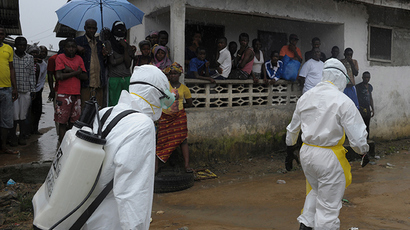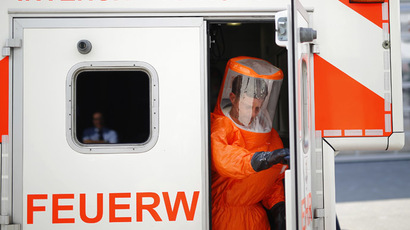US to send 3,000 troops to Africa to fight... Ebola crisis
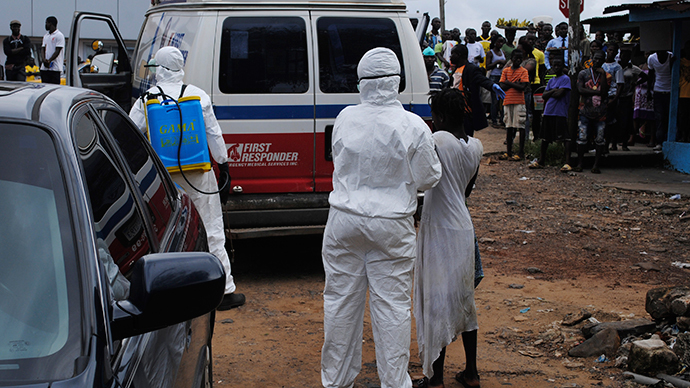
Out of 5,000 people infected by Ebola in West Africa, 2,500 have died of the virus, the World Health Organization (WHO) said on Tuesday. To combat the situation, the US announced it would send thousands of military personnel to the region.
In a short speech given at the Centers for Disease Control and Prevention (CDC), President Barack Obama announced what he called "the largest international response in the history of the CDC." The president said that although the possibility of an Ebola outbreak in the United States is "extremely low," the epidemic is "spiraling out of control" in West Africa and requires a strong response.
“If outbreak doesn’t stop now, we could be looking at hundreds of thousands of people being infected,” Obama said.
The president's statement echoed that of WHO Assistant Director General Bruce Aylward, who earlier in the day said, "Quite frankly, ladies and gentlemen, this health crisis we're facing is unparalleled in modern times." Announcing the number of deaths and people threatened by the virus, Aylward said, "we don't know where the numbers are going on this."
Speaking at a news conference in Geneva, the WHO official said a previous forecast of up to 20,000 cases "does not seem like a lot today," adding that numbers can be kept in the "tens of thousands" if there is a much faster response to the outbreak.
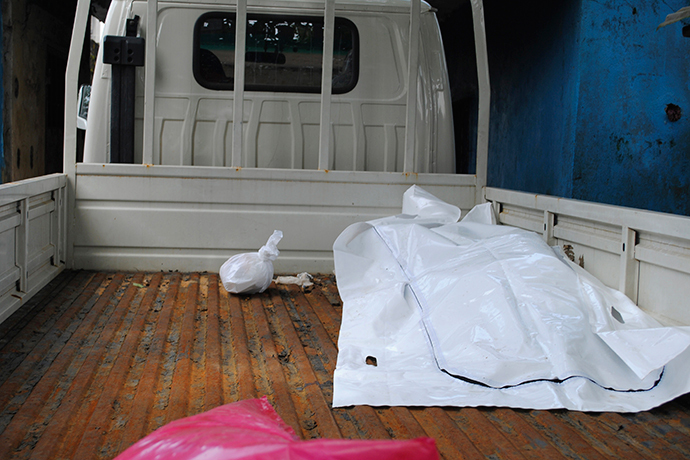
The US, meanwhile, has announced it is aiming to get the situation under control in West Africa, and is sending troops to the area.
The mission will include a major deployment in Liberia, where the epidemic is spreading fastest. According to WHO Director-General Margaret Chan, there is not a single bed available for Ebola patients in the country.
In response to Liberia's appeal to the States, made last week, Obama said the US government now plans to establish a military command center in the Liberian capital of Monrovia, to coordinate the aid operation in the infected region. It also aims to build 17 treatment centers and train thousands of healthcare workers, US officials told reporters.
Additionally, Obama said the US will help create an "air bridge" in order to quickly transport health workers and supplies into West Africa.
WHO has previously said foreign medical teams with hundreds of experts and at least 10,000 local health workers were needed in West Africa to deal with the deadly outbreak, adding that with the numbers of Ebola victims growing fast, international help should also increase.
So far Cuba and China have said they will send medical staff to Sierra Leone, where Cuba will deploy 165 people in October. China will send a mobile laboratory with dozens of professional staff to speed up testing for the disease.
Russia’s consumer watchdog Rospotrbnadzor has dispatched a mobile laboratory to Guinea to help contain the Ebola in response to a direct request from Guinea’s government. A team of Russian virologists, epidemiologists and bacteriologists has been tasked with organizing laboratory diagnosis of the Ebola virus in the country, where the outbreak of the deadly fever is also spreading fast.
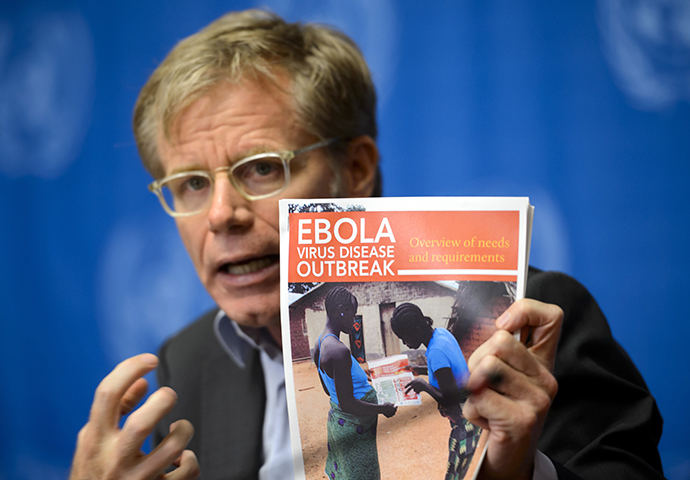
Repeating its call for an immediate and massive deployment, the Medecins Sans Frontieres (MSF) charity, which is heading the fight against the virus, said it now has to turn away sick people in Monrovia, due to the "lack of international response."
"We are honestly at a loss as to how a single, private NGO is providing the bulk of isolation units and beds," MSF's international president Joanne Liu said in a speech to the United Nations in Geneva.
According to the latest estimations by the UN, one billion US dollars is needed to tackle the Ebola outbreak. To help cover the costs of the humanitarian mission, the US Department of Defense requested to reallocate $500 million in funds from fiscal 2014, officials said.
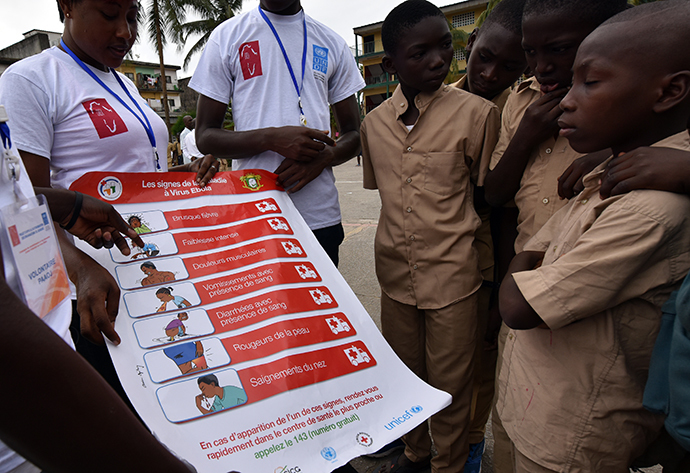
Outbreaks of the killer disease have been confirmed in several African countries, including the Democratic Republic of the Congo (DRC), Gabon, Ivory Coast, Uganda, Guinea and Sierra Leone. Liberia, along with the latter two, has suffered the most severe outbreak.
Ebola cases have also been reported in war-torn South Sudan, but the country's authorities have prohibited local media from covering any news related to the virus.
Earlier in August, WHO released a “high alert” for an epidemic threat in South Sudan. But the country might have to deal with the disease on its own. On Tuesday, it banned the employment of all foreign workers, including non-governmental organizations, aid staff, and ordered they be replaced by locals.
All foreign companies "working in South Sudan are directed to notify all aliens working with them in all positions to cease working as of October 15," a government statement said.













